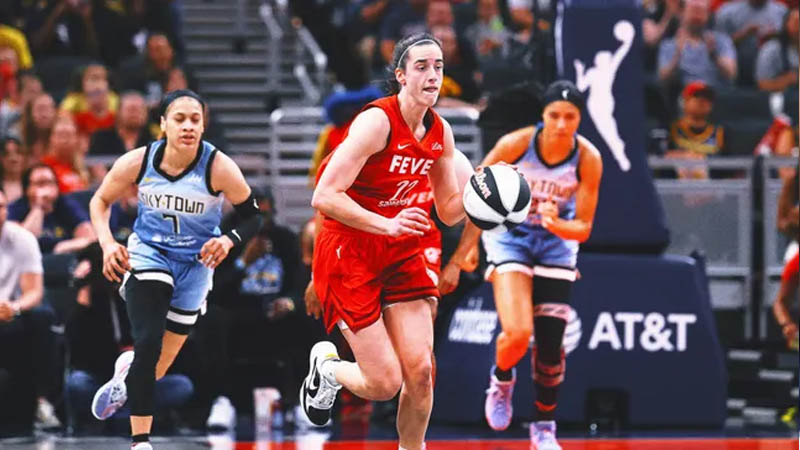The WNBA court turned into a battlefield of emotions and physicality last Saturday, featuring Chennedy Carter and Caitlin Clark at the center of a fiery controversy. The incident, which involved a shoulder check by Carter on Clark, was more than just a momentary clash—it ignited widespread debate and criticism.
Chennedy Carter, playing for the Chicago Sky, delivered a shoulder check to Caitlin Clark of the Indiana Fever—a move not recognized as a standard basketball play and described as “cheap” even within the league known for its physicality. This action sparked a reaction not just on the court but across the sports media landscape. “These incidents were not appropriate, nor is it what we do or who we are,” stated Teresa Weatherspoon, Chicago Sky’s head coach, attempting to cool down the heated situation.
The clash between Carter and Clark was not just a personal moment of aggression but a symptom of the rising stakes in women’s basketball. The game that followed saw the Indiana Fever triumph over the Chicago Sky in a well-attended event, underlining the growing popularity and intensity of the league. Carter’s actions, however, drew attention for all the wrong reasons, prompting discussions about the nature of competitiveness in sports.
Clark, a standout rookie and one of the most highly publicized new players in the WNBA’s history found herself at the center of this storm. Despite the physical challenges thrown her way, Clark has repeatedly stated her understanding and acceptance of the league’s demanding nature. “It is what it is,” she remarked post-game, showing resilience in the face of the controversy.
On the other hand, Carter’s response to the incident was less conciliatory. She declined to address any questions about Clark directly, saying, “I ain’t answering no Caitlin Clark questions,” a comment which only fueled more debate and speculation about her intentions and sportsmanship.
The incident also highlighted a broader issue with WNBA media protocols. After the game, the requirement for player availability to the press became a point of contention. Angel Reese, another prominent rookie, was notably absent from post-game media interactions, which contradicts WNBA policies that encourage transparency and accessibility.
This controversy has not only brought to light the intense physicality in women’s basketball but also the vital role media plays in shaping perceptions. As the league evolves, the need for clear communication and adherence to professional standards becomes increasingly important, both for players and the organizations they represent.
As the dust settles on this high-tension game, the incident between Carter and Clark serves as a stark reminder of the passions that sports can ignite and the responsibilities athletes carry as representatives of their teams and the sport at large.


